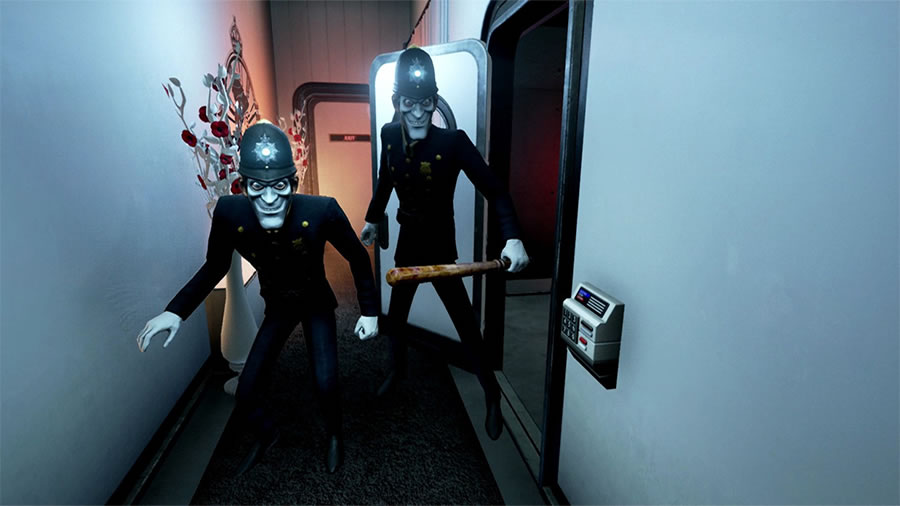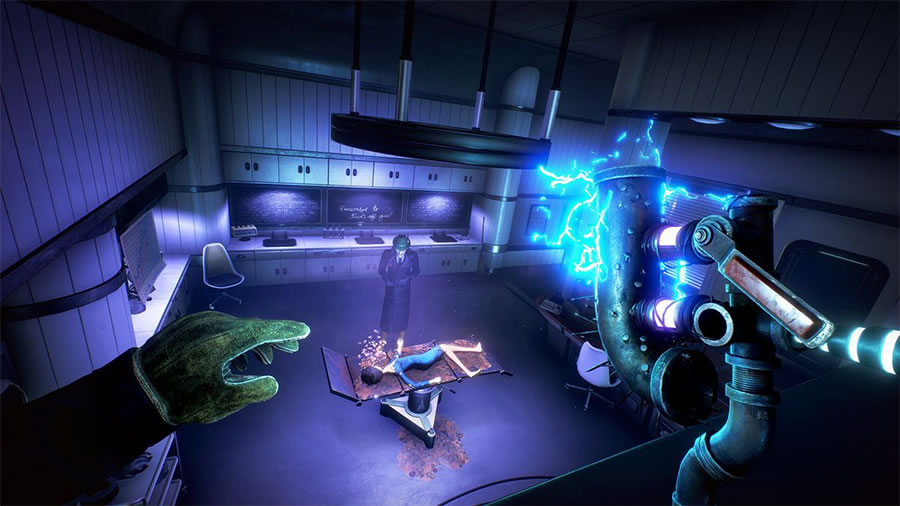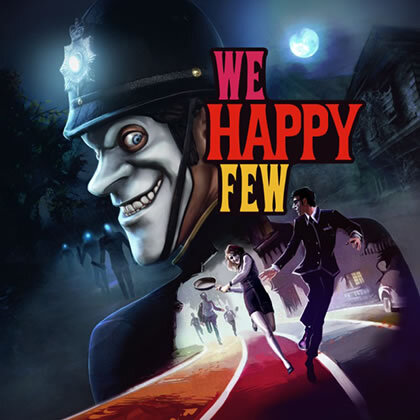- CLASSIC MAGAZINES
- REVIEW CREW
A show recapping what critics thought back
when classic games first came out! - NEXT GENERATION'S BEST & WORST
From the worst 1-star reviews to the best
5-stars can offer, this is Next Generation! - NINTENDO POWER (ARCHIVE)
Experience a variety of shows looking at the
often baffling history of Nintendo Power! - MAGAZINE RETROSPECTIVE
We're looking at the absolutely true history of
some of the most iconic game magazines ever! - SUPER PLAY'S TOP 600
The longest and most ambitious Super NES
countdown on the internet! - THEY SAID WHAT?
Debunking predictions and gossip found
in classic video game magazines! - NEXT GENERATION UNCOVERED
Cyril is back in this spin-off series, featuring the
cover critic review the art of Next Generation! - HARDCORE GAMER MAGAZING (PDF ISSUES)
Download all 36 issues of Hardcore Gamer
Magazine and relive the fun in PDF form!
- REVIEW CREW
- ELECTRONIC GAMING MONTHLY
- ELECTRONIC GAMING MONTHLY RANKS
From Mario to Sonic to Street Fighter, EGM
ranks classic game franchises and consoles! - ELECTRONIC GAMING MONTHLY BEST & WORST
Counting down EGM’s best and worst reviews
going year by year, from 1989 – 2009! - ELECTRONIC GAMING BEST & WORST AWARDS
11-part video series chronicling the ups and
downs of EGM’s Best & Worst Awards!
- ELECTRONIC GAMING MONTHLY RANKS
- GAME HISTORY
- GAME OVER: STORY BREAKDOWNS
Long-running series breaking down game
stories and analyzing their endings! - A BRIEF HISTORY OF GAMING w/ [NAME HERE]
Real history presented in a fun and pithy
format from a variety of game historians! - THE BLACK SHEEP
A series looking back at the black sheep
entries in popular game franchises! - INSTANT EXPERT
Everything you could possibly want to know
about a wide variety of gaming topics! - FREEZE FRAME
When something familiar happens in the games
industry, we're there to take a picture! - I'VE GOT YOUR NUMBER
Learn real video game history through a series
of number-themed episodes, starting at zero! - GREAT MOMENTS IN BAD ACTING
A joyous celebration of some of gaming's
absolute worst voice acting!
- GAME OVER: STORY BREAKDOWNS
- POPULAR SHOWS
- DG NEWS w/ LORNE RISELEY
Newsman Lorne Riseley hosts a regular
series looking at the hottest gaming news! - REVIEW REWIND
Cyril replays a game he reviewed 10+ years
ago to see if he got it right or wrong! - ON-RUNNING FEUDS
Defunct Games' longest-running show, with
editorials, observations and other fun oddities! - DEFUNCT GAMES QUIZ (ARCHIVE)
From online quizzes to game shows, we're
putting your video game knowledge to the test!- QUIZ: ONLINE PASS
Take a weekly quiz to see how well you know
the news and current gaming events! - QUIZ: KNOW THE GAME
One-on-one quiz show where contestants
find out if they actually know classic games! - QUIZ: THE LEADERBOARD
Can you guess the game based on the classic
review? Find out with The Leaderboard!
- QUIZ: ONLINE PASS
- DEFUNCT GAMES VS.
Cyril and the Defunct Games staff isn't afraid
to choose their favorite games and more! - CYRIL READS WORLDS OF POWER
Defunct Games recreates classic game
novelizations through the audio book format!
- DG NEWS w/ LORNE RISELEY
- COMEDY
- GAME EXPECTANCY
How long will your favorite hero live? We crunch
the numbers in this series about dying! - VIDEO GAME ADVICE
Famous game characters answer real personal
advice questions with a humorous slant! - FAKE GAMES: GUERILLA SCRAPBOOK
A long-running series about fake games and
the people who love them (covers included)! - WORST GAME EVER
A contest that attempts to create the worst
video game ever made, complete with covers! - LEVEL 1 STORIES
Literature based on the first stages of some
of your favorite classic video games! - THE COVER CRITIC
One of Defunct Games' earliest shows, Cover
Critic digs up some of the worst box art ever! - COMMERCIAL BREAK
Take a trip through some of the best and
worst video game advertisements of all time! - COMIC BOOK MODS
You've never seen comics like this before.
A curious mix of rewritten video game comics!
- GAME EXPECTANCY
- SERIES ARCHIVE
- NINTENDO SWITCH ONLINE ARCHIVE
A regularly-updated list of every Nintendo
Switch Online release, plus links to review! - PLAYSTATION PLUS CLASSIC ARCHIVE
A comprehensive list of every PlayStation
Plus classic release, including links! - RETRO-BIT PUBLISHING ARCHIVE
A regularly-updated list of every Retro-Bit
game released! - REVIEW MARATHONS w/ ADAM WALLACE
Join critic Adam Wallace as he takes us on a
classic review marathon with different themes!- DEFUNCT GAMES GOLF CLUB
Adam Wallace takes to the links to slice his way
through 72 classic golf game reviews! - 007 IN PIXELS
Adam Wallace takes on the world's greatest spy
as he reviews 15 weeks of James Bond games! - A SALUTE TO VAMPIRES
Adam Wallace is sinking his teeth into a series
covering Castlevania, BloodRayne and more! - CAPCOM'S CURSE
Adam Wallace is celebrating 13 days of Halloween
with a line-up of Capcom's scariest games! - THE FALL OF SUPERMAN
Adam Wallace is a man of steel for playing
some of the absolute worst Superman games! - THE 31 GAMES OF HALLOWEEN
Adam Wallace spends every day of October afraid
as he reviews some of the scariest games ever! - 12 WEEKS OF STAR TREK
Adam Wallace boldly goes where no critic has
gone before in this Star Trek marathon!
- DEFUNCT GAMES GOLF CLUB
- DAYS OF CHRISTMAS (ARCHIVE)
Annual holiday series with themed-episodes
that date all the way back to 2001!- 2015: 30 Ridiculous Retro Rumors
- 2014: 29 Magazines of Christmas
- 2013: 29 Questionable Power-Ups of Christmas
- 2012: 34 Theme Songs of Christmas
- 2011: 32 Game Endings of Christmas
- 2010: 31 Bonus Levels of Christmas
- 2009: 30 Genres of Christmas
- 2008: 29 Controls of Christmas
- 2007: 34 Cliches of Christmas
- 2006: 33 Consoles of Christmas
- 2005: 32 Articles of Christmas
- 2004: 31 Websites of Christmas
- 2003: 29 Issues of Christmas
- 2002: 28 Years of Christmas
- 2001: 33 Days of Christmas
- NINTENDO SWITCH ONLINE ARCHIVE
- REVIEW ARCHIVE
- FULL ARCHIVE
We Happy Few
For the last two years, I've been convinced that it was a bad idea to release We Happy Few as an Early Access title. When I first played the game back in 2016, I was shocked to discover that it was more of an open-world survival game than a narrative adventure. It felt like a case of bait and switch, with the trailer really selling us on the quirky setting and counter-culture story. I went in expecting BioShock but got Don't Starve in its place. From that demo alone, I had all but written the game off.
But now that I've played through the finished product, I'm glad that we got to see We Happy Few in its primitive state. The negative reaction got the company to drastically change focus and create a game more in line with that original trailer. The end result is messy, meandering and unfocused at times, but it's also weird, wonderful and unpredictable. Imperfections and all, this is mostly what I wanted We Happy Few to be.
With three main characters, hundreds of missions and a giant conspiracy to uncover, there's a lot going on in We Happy Few. In fact, there's so much going on that I could spend the next hour just trying to unravel everything. The important part is that the year is 1964 and the people who populate Wellington Wells are living an Orwellian nightmare. The news is heavily redacted, the government keeps close tabs on what you're doing and everybody is expected to stay medicated on a tiny pill called Joy. It's a dystopian timeline where everybody is too high to notice what's really going on.
Arthur is one of the few people who wakes up to reality and is horrified by what he sees. He's the first of three characters who are forced to make the most of a bad situation and find a way out. In Arthur's case, the plan is to cross every bridge necessary to get to the train tracks and escape Willington Wells before it's too late. This is a solid plan, but one that is complicated by every kind of problem you can imagine. All this gets him caught up in a crazy conspiracy that forces Arthur to confront his past and help those who used to be closest to him.
When We Happy Few first went into Early Access, it hinted at a game that was going to be more about crafting and surviving than fighting through a set narrative. It was going to be about permanent deaths, procedurally-generated worlds and a narrative that didn't get in the way of the survival mechanics. Most of that original vision has been tossed out the window in order to focus on a first-person adventure that is driven by its compelling story.
That's not to say that there aren't remnants remaining from the early days. The world, for whatever reason, is still procedurally-generated, though that only happens when you first start the game. The crafting and survival elements also still remain, but they have been toned down to a point where you barely notice them. You'll occasionally have to craft healing items or sew a new uniform, but it's largely not invasive and certainly not the you-only-live-once approach hinted at in the early days.
 Click For the Full Picture Archive
Click For the Full Picture ArchiveThis change gives us a much more focused but slightly less original experience. A lot of what you do in game feels like what you've seen in other open-world adventure games, especially Fallout. So much of We Happy Few revolves around meeting new people and then running fetch quests to get what you want. It's the kind of game where just entering a new town will open up a half dozen side quests. It's a familiar formula that works well here, but don't go into this game expecting a wholly unique experience.
Where this game excels is in its world building. If you have followed my reviews over the years, then you already know that developing a fully realized world matters a lot to me. I love being in this alternative 1960s timeline. I'm a fan of the fashion sense, the slang, the interior design, music choices and all of the tiny touches that bring Wellington Wells to life. I am completely fascinated by the crazy characters you run into and liked peeking behind the curtain to see how the oppressive government really works. These elements kept me invested, even when the story meanders and the missions grow repetitive.
This is a game that suffers from there being too many ideas. It feels like they had these ambitious plans for a whole series of games and ended up condensing it down to one really long adventure. In some ways I really respect how many things they are throwing at you, but there's no question that they make the game feel a bit unfocused and scatterbrained at times. You see this in how the game is structured, especially when it comes to the three playable characters. You'll spend a good twenty hours with Arthur before making it to the second act, which turns things over to a former Twiggy-style model named Sally.
I like the idea of seeing this world through the eyes of three completely different people, but the way they handle it in We Happy Few is a little off-putting. You spend so much time with each character that it always feels like you're starting over from scratch when you enter a new act. I do like that each character gets their own set of missions, but it will feel at times like you're playing the same game three different times. I think the character switching would have worked better if got to rotate between them instead of completing their stories one at a time.
 Click For the Full Picture Archive
Click For the Full Picture ArchiveThat said, I really like how each of the three characters see and interact with the world they are living in. While Arthur just wants to get out, Sally has made quite a few contacts and may have an incentive to stick around. She also is the mother of a newborn, so her time will be divided between running missions and looking after a baby. This is what I mean when I say the game has almost too many ideas. It feels like they just keep loading it up with mechanics and distractions instead of focusing on a streamlined story. By the time you've gotten to act three, there's a good chance that you're going to be bored of Wellington Wells and their drug epidemic.
And yet, despite it being way too long and kind of a mess at times, I love being in this world. We Happy Few is a great looking game with an atmosphere and style you don't see in a lot of open world adventures. I like the quirky cast of characters and uncovering the truths behind the totalitarian government. I also think they take the subject matter in quite a few interesting ways, though I will readily acknowledge that it far too often devolves into a bunch of boring corridor fights. There's so much that I like about this game that I'm willing to overlook a lot of its imperfections.
We Happy Few is a weird and wonderful ride filled with crazy characters, an engaging story and a fully-realized world set in the fictional 1960s. It's also a long game that suffers from trying to juggle way too many ideas at once. What's more, the action is stiff and all versions of the game seem to be plagued by rampant bugs. But even with the lows, I couldn't get enough of the highs in We Happy Few. I liked exploring this world and seeing it from multiple perspectives. There are a lot of great ideas here that probably could have been streamlined, but I think it's worth going off the Joy and discovering what's really going on in We Happy Few.
HOME |
CONTACT |
NOW HIRING |
WHAT IS DEFUNCT GAMES? |
NINTENDO SWITCH ONLINE |
RETRO-BIT PUBLISHING
Retro-Bit |
Switch Planet |
The Halcyon Show |
Same Name, Different Game |
Dragnix |
Press the Buttons
Game Zone Online | Hardcore Gamer | The Dreamcast Junkyard | Video Game Blogger
Dr Strife | Games For Lunch | Mondo Cool Cast | Boxed Pixels | Sega CD Universe | Gaming Trend
Game Zone Online | Hardcore Gamer | The Dreamcast Junkyard | Video Game Blogger
Dr Strife | Games For Lunch | Mondo Cool Cast | Boxed Pixels | Sega CD Universe | Gaming Trend
Copyright © 2001-2025 Defunct Games
All rights reserved. All trademarks are properties of their respective owners.
All rights reserved. All trademarks are properties of their respective owners.





























